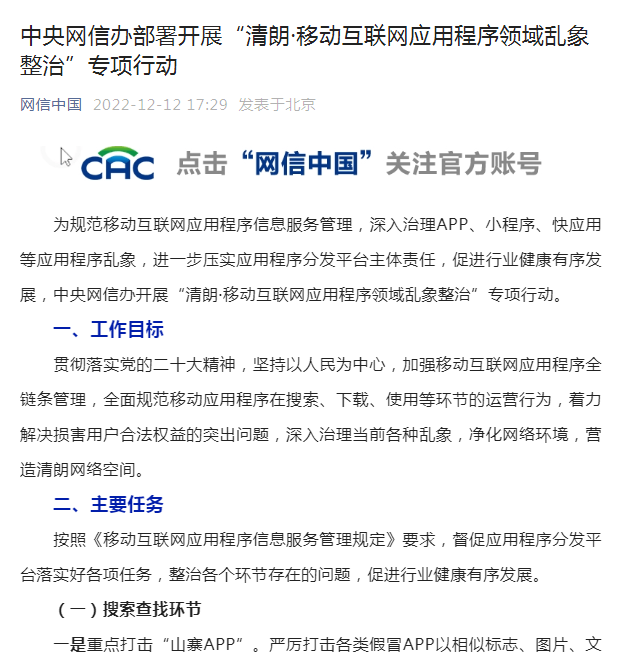外研版高中英语 必修一 Module 5 重点短语、句型和语法!
Module 5
单词
liquid [likwid] n. 液体
expand [ikspænd] vi.膨胀
contract [kɒntrækt] vi.收缩
substance [sʌbstəns] n. 物质
mixture [mikstʃə] n.混合物
oxygen [ɒksədʒən] n. 氧气
electricity [,ilektrisiti] n. 电
stage [steidʒ] n. 阶段;时期
conclusion [kənklu:ʒən] n. 结论
aim [eim] n. 目标;目的
reaction [riækʃən] n. 反应
electrical [ilektrikəl] adj.与电有关的;用电的
equipment [ikwipmənt] n. 设备;装备
react [riækt] vi.(化学)反应
potassium n. 钾
sodium [səudiəm] n. 钠
calcium [kælsiəm] n. 钙
magnesium [mægni:ziəm] n. 镁
aluminium [,æljuminiəm] n. 铝
zinc [ziŋk] n. 锌
partial [pɑ:ʃəl] adj.部分的;局部的
copper [kɒpə] n. 铜
oxide [ɒksaid] n. 氧化物
rust [rʌst] vi. 生锈
boil [bɒil] vt.生锈
ordinary [ɒ:dinəri] adj. 普通的;平常的
steam [sti:m] n. 蒸汽;水气
float [fləut] vi.漂浮
form [fɒ:m] vi.形成
dissolve [dizɒlv] vt. 溶解;分解;分离
balance [bæləns] n.天平
crucible [kru:sibl] n. 坩锅
tongs [tɒŋz] (复)夹子;小钳子
flame [fleim] n. 火焰
facility [fəsiliti] n.(常作复数)设备;工具
lecture [lektʃə] n. 演讲
department [dipɑ:tmənt] n.(大学的)科、系
astonished [əstɒniʃt] adj.吃惊的;惊愕的
Phrase短语
add…to… 往……加入……
used to 过去(常常)……
in the area of 在……领域
be proud of 为……感到骄傲/自豪
be supposed to 应当;理应
语法归纳
形容词和副词的比较等级
考点一:倍数表达法
1.倍数+as+形容词/副词原级+as…
▶ Asia is four times as large as Europe. 亚洲是欧洲的四倍大。
▶ The dining room is twice as big as the kitchen. 餐厅是厨房的两倍大。
2.倍数+形容词/副词比较级+than…
▶ Our school is twice bigger than yours. 我们学校是你们学校的两倍大。
3.倍数+the+名词(size,height,length,width,etc.)+of…
▶ The new building is three times the height of the old one. 这座新楼是那座旧楼的三倍高。
▶ This stone bridge is twice the length of the wood one. 这座石桥是那座木桥的两倍长。
4.倍数+as many/much+名词+as…
▶ He has got three times as many books as his younger sister. 他的书比他妹妹的多两倍。
5.倍数+what从句
▶ The price of the house this year is twice what it was last year. 今年的房价是去年房价的两倍。
6. increase/fall等增减性动词+by+倍数
▶ Compared with last year, our coal output has increased by three times. 与去年相比,我们的煤产量增长了三倍。
7.倍数+compared with+被比较对象
▶ The number of the students in our school has increased by four times compared with 1980. 我们学校的学生人数比 1980 年增加了四倍。
考点二:形容词/副词比较级的基本用法
原级比较
(1)"as+形容词/副词原级+as"表示"和……一样……",其否定形式为"not as/so+形容词/副词原级+as"。
▶ He runs as fast as I. 他跑得和我一样快。
▶ Li Hua doesnt draw as/so well as Liu Fang. 李华画画不如刘芳好。
(2)as+adj.+n.+as
▶ I have as many books as Tom. 我有和汤姆一样多的书。
▶ Sam drank as much coffee as Mary. 萨姆跟玛丽喝的咖啡一样多。
比较级的常见句式
"形容词/副词比较级+than"意为"比……更……"。
▶ Yao Ming is taller than Michael Jordan. 姚明比迈克尔·乔丹高。
▶ She speaks louder than her mother. 她比她妈妈说话声音大。
比较级的修饰词
形容词和副词的比较级可以用程度副词来修饰,常见的此类副词(词组)有a bit, a little, far, much, a lot, a great deal, any, still, even等。
▶ The girl has made far greater progress than her classmates. 这个女孩的进步比她同学的大得多。
▶ Are you feeling any better today? 你今天感觉好点儿了吗?
考点三:比较级的常见结构
1."比较级+and+比较级"/"more and more+原级"表示"越来越……"。
▶ It becomes warmer and warmer when spring comes. 春天来了,天气越来越暖和了。
▶ Our school is becoming more and more beautiful. 我们的学校越来越美丽了。
2. "the+比较级(+主语+谓语), the+比较级(+主语+谓语)"表示"越……,越……"。
▶ The sooner, the better. 越快越好。
3. "the+比较级+of the two …"表示"两者中较……的那一个"。
▶ She is the taller of the two sisters. 她是姐妹俩中较高的那一个。
4. "否定词+比较级"表示最高级含义。
▶ I have never seen a stranger bird. 这是我见过的最奇怪的鸟。
5. "more than+从句"表示"超出……的范围"。
▶ The noise is more than I can put up with. 这种噪音我忍受不了。
Module 6
单词
contain [kəntein] vt. 包含;包括
access [ækses] n.接近;通路
crash [kræʃ] vi.(计算机)崩溃
keyword [ki: , wə:d] n.密码;口令
log [lɒg] vt.记录;登录
software [sɒftwєə] n. 软件
breakdown [breikdaun] n.故障
source [sɒ:s] n.来源;出处
accessible [əksesəbl] adj.可进入的; 可使用的
data [deitə] n.(复)数据
defence [difens] n.保护;防卫
create [kri:eit] vt. 创造;发明
network [netwə:k] n. 网络
via [vaiə] prep.途径;经由
percentage [pəsentidʒ] n.百分数;百分率
design [dizain] vt. 设计
document [dɒkjumənt] n. 文件
invention [invenʃən] n. 发明
permission [pəmiʃən] n. 许可
military [militəri] adj.军事的;军队的
concentrate [kɒnsəntreit] vi.集中(注意力、思想等)
definite [definit] adj. 明确的
fantastic [fæntæstik] adj.极好的;美妙的
independent [,indipendənt] adj.独立的
essay [esei] n.文章
pass [pæs] vt.超过
frequently [fri:kwəntli] adv.时常;经常
disadvantage [,disədvɑ:ntidʒ] n.弊端;缺点
average [ævəridʒ] adj.平均的
statistics [stətistiks] n.(复)统计数字
shorten [ʃɒ:tn] vt.缩短
sideways [saidweiz] adv.横着地;斜着地
Cincinnati n. 辛辛那提(美国城市)
search n. vt. & vi. 搜寻;寻找
in search of 寻找;追求
geography n. 地理书
salesman n. 售货员,店员
lad n. 少年;小伙子
request n. & vt. 请求;要求
store n. 商店
disappointment n. 失望;沮丧
bookseller n. 书商
ahead of 在…前面;优于
sailor n. 海员,水手;水兵
add vt. 又说,补充说
eyebrow n. 眉毛
remainder n. 剩余物
Phrase短语
consist of 由 ……组成
as well 也
become known as … 作为……而出名;被称为……;叫作……
go down 下降
come up with 提出
from that moment on 从那时起
concentrate on 聚精会神;集中思想
compared with 与……相比
语法归纳
Ⅰ.合成词
考点一:合成词
由两个或两个以上独立的词合成的新词叫合成词。合成词有的用连字符"-"连在一起,有的直接连在一起。常见的合成词有合成名词、合成形容词、合成动词等。
1.合成名词
(1)合成名词可在句中作主语、宾语等。
▶ Sightseeing took up the whole morning. 观光花了一上午时间。
▶ Smoking is not allowed during take-off. 飞机起飞时不允许吸烟。
(2)合成名词的常见构成方式:
● 名词+名词
▶ football 足球 self-respect 自尊
● 动词+副词
▶ breakout 越狱 take-off 起飞
● 副词+动词
▶ outbreak 崩溃 income 收入
● -ing+名词
▶ sleeping-pill 安眠药 dining-car 餐车
● 形容词+名词
▶ blackboard 黑板 double-dealer 两面派
2.合成形容词
(1)合成形容词多在句中作定语,有些也可作表语。
▶ He can speak a lot of everyday English. 他会说很多日常英语。
▶ She is very outgoing. 她很外向。
(2)合成形容词的常见构成方式:
● 数词+名词(+形容词)
▶ eight-year-old 八岁的 three-metre(-long)三米(长)的
● 形容词/副词+现在分词
▶ hard-working 勤劳的 easy-going 随和的
● 名词+现在分词
▶ mouth-watering 令人垂涎的 peace-loving 热爱和平的
● 形容词/副词+过去分词
▶ ready-made 现成的 well-known 著名的
● 名词+介词+名词
▶ face-to-face 面对面的 shoulder-to-shoulder 肩并肩的
● 名词+过去分词
▶ man-made 人造的 self-educated 自学的
● 数词/形容词+名词-ed形式
▶ four-legged 四条腿的 warm-hearted 热心肠的
● 形容词+名词
▶ high-class 高级的 large-scale 大规模的
● 名词+形容词
▶ snow-white 雪白的 colour-blind 色盲的
3.合成动词
合成动词的常见构成方式:
● 名词+动词
▶ sleepwalk 梦游 sightsee 观光
副词/介词+动词
▶ overthrow 推翻 undergo 经历
● 形容词+动词
▶ whitewash 粉刷 safeguard 捍卫
● 副词/介词+名词
▶ underline 在(……下)画线 overpower 制胜,压倒
Ⅱ.冠词
考点一:不定冠词的用法
1.不定冠词的基本用法
(1)表示数量"一"的概念,与one相近,但不如one语气强。
▶ I have a bike. Its made in Shanghai. 我有一辆自行车,它产于上海。
(2)用在可数名词单数前,泛指一类人或事物。
▶ A bird has wings. 鸟有翅膀。
▶ A teacher shouldnt talk like that. 教师不应当那样讲话。
(3)用来表示不确定的某一个,相当于a certain,some。
▶ A Mr Wang came to see you this morning. 今天早上一位王先生来找过你。
(4)表示"每一",相当于per或each。
▶ The car can run 200 kilometres an hour. 这种车每小时能行驶200千米。
(5)用于首次提到的对话一方不知道的人或物前。
▶ There is a park on the corner of the street. 在这条街的拐角处有个公园。
(6)用在物质名词前,表示"一阵,一份,一场,一种"等。
▶ They were caught in a heavy rain. 他们遇上了一场大雨。
▶ Id like to have an ice cream. 我想来一份冰激凌。
(7)knowledge, collection, understanding等名词后加of...时,其前或其修饰语前常用不定冠词a/an。
▶ Her new book is a collection of short stories. 她的新书是一部短篇小说集。
▶ He has a good knowledge of French. 他精通法语。
(8)具有动作意义的名词在与have,take,make,give等动词构成短语表示一种短暂性的动作时,此名词前须用不定冠词。
▶ have a look/walk/break/try 看一看/散步/休息/试一试
(9)用在某些固定搭配中。
▶ as a result 因此 as a rule 通常
▶ as a whole 总体上 as a matter of fact 事实上
▶ at a loss 不知所措 in a hurry 匆忙
▶ in a word 总之 in a sense 在某种意义上
2.不定冠词的特殊用法
(1)不定冠词可以用于某些具体化的抽象名词前,可以具体化的抽象名词有shame, surprise, pleasure, honour, success, help, beauty, failure等。
▶ Its a pleasure for me to work with you. 和你一起工作我非常高兴。
▶ She was a famous beauty in her youth. 她年轻时是个有名的美人。
(2)表示世界上独一无二的事物的名词前一般加定冠词the,但如果名词前有修饰语,可用不定冠词。如:
▶ the world, a peaceful world; the moon, a bright moon
(3)不定冠词用于序数词前表示"又一,再一",相当于another。
▶ Can you give me a second chance, please? 你能再给我一次机会吗?
(4)表示一日三餐的名词和专有名词前如果有形容词修饰,也可用不定冠词。
▶ I had a wonderful supper yesterday. 昨晚我吃了一顿美味佳肴。
(5)"a most+形容词"表示"很……",most在此不表示最高级含义,而是"很,非常"的意思,相当于very;"the +most+多音节形容词"为多音节形容词的最高级形式,表示"最……"。
▶ This is a most interesting film. 这是一部非常有趣的电影。
(6)用在"be+of+a(n)+n."结构中,表示"相同的",相当于the same。
▶ They are nearly of an age. 他们几乎同岁。
(7)不定冠词的使用与数的概念有关,如果两个名词共有一个不定冠词,那么这两个名词指同一个人或物。
▶ His father is a teacher and poet. 他父亲是位教师兼诗人。
(8)不定冠词用在专有名词中的地名前,表示"一个……的地方"。
▶ She is now a different China from what she was twenty years ago. 现在的中国是一个与二十年前不同的国家了。
考点二:定冠词的用法
1.定冠词的基本用法
(1)表示"特指"。上文已经提到的人或物,再次提到时在其前加the;也可指上文未提到,但谈话双方都知道的人或物。
▶ He bought a house. Ive been to the house. 他买了幢房子。我去过那幢房子。
(2)用在可数名词单数前表示一类人或事物。
▶ The rose is my favourite flower. 玫瑰花是我最喜爱的花。
(3)用在被短语或从句修饰的名词前表示特指。
▶ The young man is the student who I taught 10 years ago. 这个年轻人是我十年前教过的学生。
(4)指世界上独一无二的事物。但当这些名词前有修饰成分时,可以用不定冠词。
The earth goes around the sun. 地球围绕太阳转。
(5)用在序数词、形容词/副词最高级以及形容词only,very,same等前面。
▶ Is this the first time you have visited Beijing? 这是你第一次游览北京吗?
▶ He runs the fastest in his class. 他是他们班跑得最快的。
(6)用在表示姓氏的复数名词之前,表示一家人或夫妻俩。
▶ The Greens are on holiday now. 格林一家(夫妇)现在正在度假。
(7)用于表示具体的地点、方位、时间或某天的一部分等的名词前。如:
▶ in the east/south/west/north在东/南/西/北方
▶ on the right/left在右/左边
(8)用在表示江河、湖泊、海洋、山脉、岛屿、海湾、海峡、报纸、书籍、杂志、会议、条约等的专有名词前。
▶ the Pacific (Ocean)太平洋 the Persian Gulf 波斯湾
▶ the Himalayas 喜马拉雅山脉
(9)用在某些固定词组中。
▶ make the most/best of 充分利用
▶ in the end 最后
▶ by the way 顺便说一下 in the distance 在远处
2.定冠词的特殊用法
(1)用于表示世纪、年代、朝代的名词以及逢十的复数名词前(指某个年代)。如:
▶ in the 1990s 在20世纪90年代;the Qing Dynasty 清朝
(2)在 "动词(take/catch/pat/hit/...)+sb.+介词(by/in/on)+the+名词(身体某一部位)"结构中,名词前要用定冠词the,而不用物主代词。
▶ He took her by the hand. 他拉住了她的手。
(3)用在表示度量单位的名词前,如by the hour/day/week/month/year/dozen/yard/ton/kilo,但是size/weight/time这类名词跟by连用时不加冠词。
▶ I hired the car by the hour. 我按小时租了这辆车。
(4)用于句型 "the+比较级...,the+比较级... ",该句型表示"越……越……"。
▶ The more we get together, the happier well be. 我们相处的时间越多,就越幸福。
(5)用于某些形容词或分词前面表示一类人或事物。作主语时谓语动词一般用复数,但在表示某一个人或某种抽象概念时谓语动词用单数。
▶ The rich should help the poor. 富人应当救助穷人。
▶ The learned are very modest. 有学问的人很谦逊。
考点三:零冠词的用法
1.零冠词的基本用法
(1)(第一次使用的)不可数名词前通常不用冠词。如:
▶ Man needs air and water. 人类需要空气和水。
(2)专有名词前一般不用冠词。但某些由普通名词构成的专有名词前通常用定冠词。如:
▶ Lei Feng 雷锋 Beijing 北京
the United States 美国
(3)复数名词泛指一类人或事物时,其前不用冠词。
▶ On weekends,shopping malls are always crowded with people. 周末,商场里总是挤满了人。
(4)表示街道、广场、公园和大学等的名词前,一般不用冠词。如:
▶ Changan Street 长安街
Tiananmen Square 天安门广场
Beihai Park 北海公园
Tsinghua University 清华大学
(5)表示学科名称、球类运动、棋类游戏等的名词前不用冠词。
▶ I am very interested in English. 我对英语很感兴趣。
(6)表示一日三餐等的名词前一般不用冠词。但若指具体的某顿饭或三餐前有形容词修饰时要用冠词。如:
▶ have breakfast/lunch/supper 吃早饭/午饭/晚饭
▶ have a wonderful supper 吃一顿丰盛的晚餐
(7)表示季节、月份、星期、节假日等的名词前往往不用冠词。
▶ We like to go swimming in summer. 我们夏季喜欢去游泳。
(8)名词前已有指示代词、物主代词或不定代词时不用冠词。
▶ My pen is much more expensive than yours. 我的钢笔比你的昂贵多了。
(9)表示独一无二的职位、头衔的名词前用零冠词。
▶ Mandela, president of South Africa, was awarded the Nobel Peace Prize in 1997. 南非总统曼德拉于1997年被授予诺贝尔和平奖。
2.零冠词的特殊用法
(1)turn (变成) 后的单数名词作表语其前不用冠词。
▶ His brother has turned writer. 他弟弟已成为一名作家。
(2)在"表示类型的名词+of... "这一结构中of后的可数名词单数前不用冠词。
▶ These kinds of questions often appear in the exam. 此类问题在考试中经常出现。
(3)"零冠词+可数名词单数+as/though+主语+谓语+主句"意为"尽管/虽然……但是……"。
▶ Hero as he is, he has some shortcomings. 尽管他是个英雄,他也有一些缺点。
(4)与by 连用的表示交通工具和通讯工具的名词之前不用冠词。
▶ Its quicker by air than by sea. 乘飞机比乘船快。
(5)有些名词前加定冠词和不用冠词意思差别很大:
▶ at school 在上学
at the school 在学校里
▶ at table 在吃饭
at the table 在桌子旁
▶ in hospital 住院
in the hospital 在医院里
▶ in prison 在坐牢
in the prison 在监狱里
▶ by sea 乘船
by the sea 在海滨
▶ in front of 在……的前面
in the front of 在……(内部)的前面
▶ on earth 究竟,在世界上
on the earth 在地球上
▶ out of question 毫无疑问
out of the question 不可能
声明:文章来源自网络,旨在交流学习,如有侵权请及时联系删除










